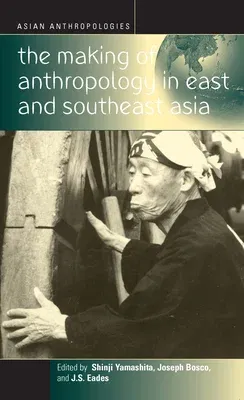The Making of Anthropology in East and Southeast AsiaPaperback, 1 January 2004

Qty
1
Turbo
Ships in 2 - 3 days
In Stock
Free Delivery
Cash on Delivery
15 Days
Free Returns
Secure Checkout

Part of Series
Asian Anthropologies
Part of Series
Asian Anthropologies, 3
Print Length
386 pages
Language
English
Publisher
Berghahn Books
Date Published
1 Jan 2004
ISBN-10
1571812598
ISBN-13
9781571812599
Description
Product Details
Book Format:
Paperback
Country of Origin:
US
Date Published:
1 January 2004
Dimensions:
22.86 x
15.24 x
2.03 cm
ISBN-10:
1571812598
ISBN-13:
9781571812599
Language:
English
Location:
New York, NY
Pages:
386
Publisher:
Weight:
512.56 gm